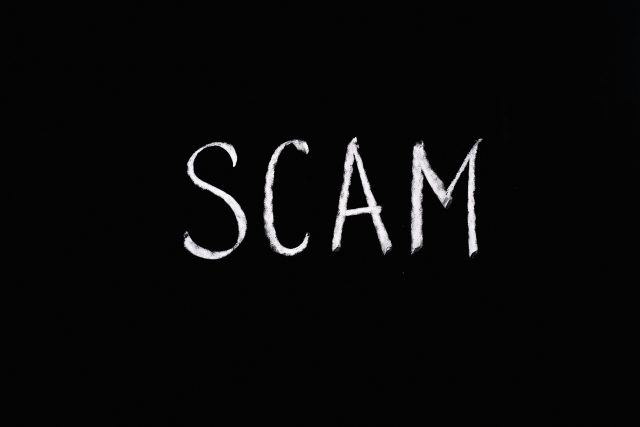The New York State Department of Taxation and Finance, the Office of Information Technology Services, the Department of Financial Services, the Department of State’s Division of Consumer Protection, and the Division of Homeland Security and Emergency Services shared information security tips on January 28, Data Privacy Day.
New Yorkers can help keep their sensitive personal information secure online and at home by following these tips:
Be wary of unsolicited emails and telephone calls asking for personal information. Never share personal information, such as your Social Security number, in response to an unsolicited email or telephone call. If the email or call claims to be from a company with which you do business, call it first to confirm the contact is legitimate. Scammers will also use scare tactics and threats related to tax debt to get you to share your personal and financial information.
Secure your mobile devices. Apply software updates that patch known vulnerabilities as soon as they become available. Use security features built into your device, such as a passcode, and use programs that encrypt data and remotely wipe contents if the device is lost or stolen.
Be careful with Wi-Fi hotspots. Public wireless hotspots are not secure, which means that anyone could potentially see what you are doing on your mobile device while you are connected. Limit what you do on public Wi-Fi and avoid logging into sensitive accounts.
Know your apps. Thoroughly review the details and specifications of an app before you download it. Review and understand the privacy policy of each mobile app. Be aware that the app may request access to your location and personal information.
Be cautious about the information you share on social media. Avoid posting your birthdate, telephone number, home address, or images that identify your job or hobbies. This information may often reveal answers to security questions used to reset passwords, making you a possible target of scammers looking to access your accounts and personal information.
Use strong passwords. Create different passwords for all your accounts. Use 10 to 12 characters in a combination of letters (upper and lower case), numbers, and symbols. Regularly change your passwords.
Vary your security questions. Do not use the same security questions on multiple accounts. Select security questions for which the answers cannot be guessed or found by searching social media or the internet.
Use two-step verification to access accounts. To enhance the security of online accounts, whenever possible require a password and an extra security code to verify your identity when you sign in.
Beware of phishing. Do not click on links, download files, or open attachments in emails from unknown senders. Open attachments only when you are expecting them and know what they contain, even if you know the sender. Access more information on phishing from the Office of Information Technology Services YouTube page here.https://www.youtube.com/embed/OPqw3Uqe0Jo?version=3&rel=1&showsearch=0&showinfo=1&iv_load_policy=1&fs=1&hl=en-US&autohide=2&wmode=transparent
New York State Commissioner of Taxation and Finance Michael Schmidt said, “Cyber criminals work year round to steal sensitive information, but taxpayers need to be especially vigilant during the tax season when identity thieves target confidential tax information.”
Superintendent of Financial Services Linda A. Lacewell said, “As technology continues to evolve and we share more personal and financial information online, it is now more important than ever for businesses and consumers to protect their sensitive information. As we mark Data Privacy Day, we remind financial institutions to remain vigilant by adhering to DFS’ nation leading cybersecurity regulation and we remind consumers to be informed on best practices to safeguard their private information from cyberattacks.”
State Division of Homeland Security & Emergency Services Commissioner Patrick A. Murphy said, “The pandemic has impacted nearly every aspect of our daily lives and, unfortunately, the security of New Yorkers’ private information is no exception. Malicious actors wasted no time launching new, CoViD-related phishing campaigns and other cyber-attacks on the public seeking to access private information through fraudulent requests related to the pandemic. New Yorkers should remain vigilant during these extraordinary times and learn how to protect their personal information from falling into the wrong hands.”
New York State Office of Information Technology Services Chief Information Officer Angelo “Tony” Riddick said, “Under Governor Cuomo’s leadership, NYS continues to safeguard personal information and educate on steps to minimize cyber risk in an effort to prevent New Yorkers from falling prey to data thieves. In a more connected world, National Data Privacy Day reminds us of the effective steps we must take to protect our information and remain vigilant against cybercrime.”
New York State Office of Information Technology Services Chief Information Security Officer Karen Sorady said, “Now more than ever, we need to be aware of the threats to our privacy that are ever-present while online. In recognition of National Data Privacy Day, all New Yorkers should remember the importance of protecting their personal data from cyber criminals. To this end, ITS provides a wide array of helpful cyber tips for the public, in addition to online safety resources and real-time advisories that can help safeguard against cybercrime.”
New York State Secretary of State Rossana Rosado said, “With more people relying on digital resources than ever before, it is critical for all New Yorkers to protect their online accounts to prevent data theft. Data Privacy Day is a great opportunity to remind consumers to be vigilant in safeguarding their information.”
















